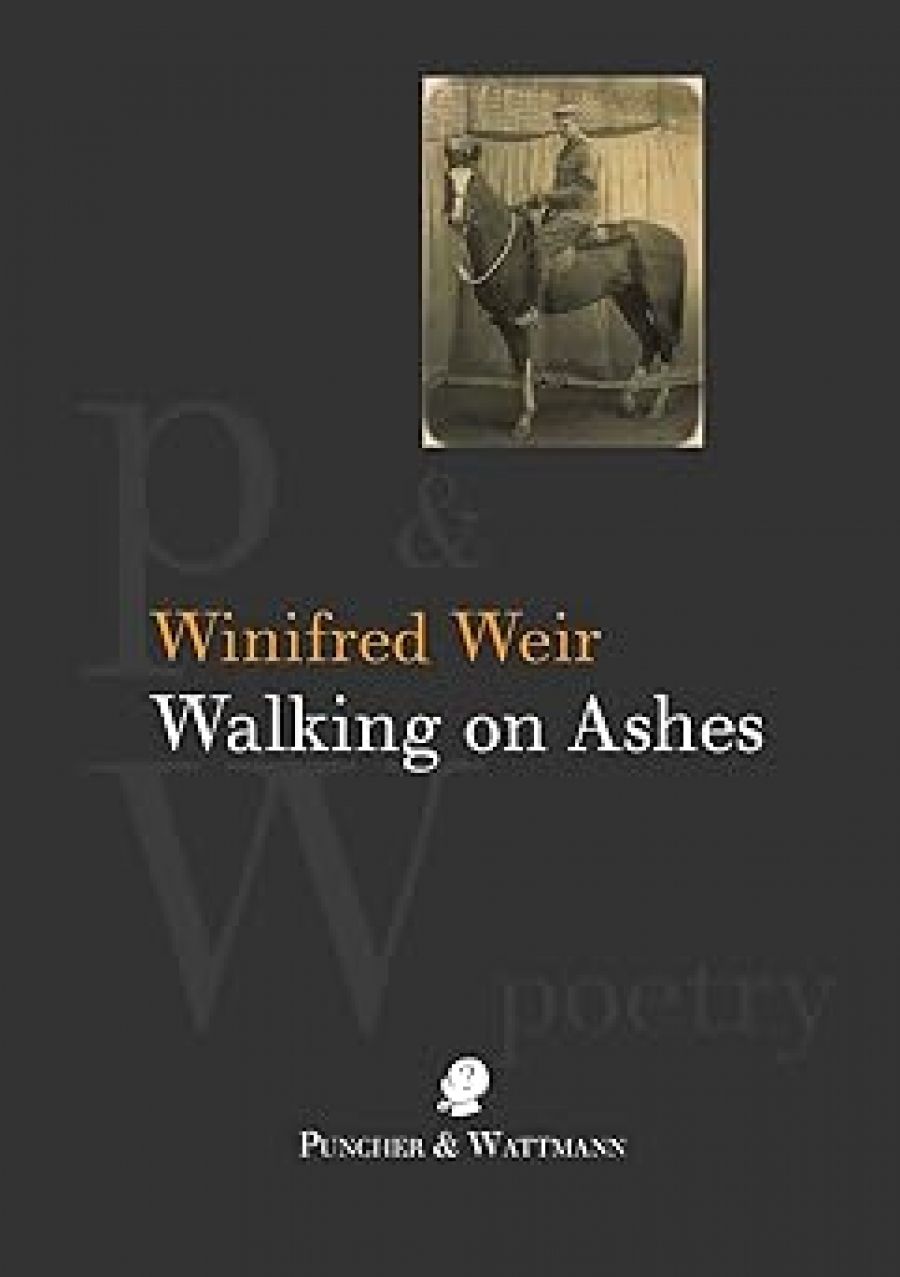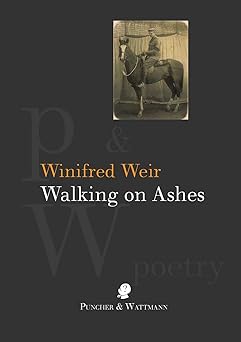
- Free Article: No
- Contents Category: Poetry
- Review Article: Yes
- Online Only: No
- Custom Highlight Text:
In 1914 men left for war expectant of a great adventure,’ Winifred Weir writes in the introduction to her poetry collection. ‘So many died. So many returned haunted, silent, desperate with what they had seen and endured.’ Walking on Ashes is Weir’s attempt to understand the effects of war on her family; her father and brother fought in World War I and World War II, respectively. The book, loosely chronological, contains dates of battles and their locations (‘Gallipoli’, ‘Passchendaele 1917’, ‘Amiens, France, 1918’). Some poems are out of order, suggesting that the sequence of events is less important than their overall consequence. In Walking on Ashes, time – like Weir’s father’s right arm – is shattered by war. The point of view is fluid, too: it shifts between father, mother, daughter, and son, as each has an experience to relate.
- Book 1 Title: Walking on Ashes
- Book 1 Biblio: Puncher & Wattmann, $24 pb, 95 pp
- Book 1 Cover Small (400 x 600):

Weir is an accomplished poet. Her poems are imagistic in their concision – each line is taut and bristles with emotion. I was also struck by the subtle use of space in the poems; Weir inserts space between words to convey disjuncture or acute distress.
Interestingly, sewing is used in some poems as a metaphor for the tempering of psychological trauma. When the men return from war, they bring its horrors with them, which the women try to ‘mend’ by domestic means. For example, ‘A Mother’s Watch’ begins, ‘Our son has come home / … taut like tripwire’, and ends, ‘The past the present / blunted jagged / These pieces will never seam’.
There is nothing heroic about war here. In its tone, the book is reminiscent of films such as The Thin Red Line, which represent war as chaotic and depraved. As poetry, Walking on Ashes is outstanding. It is particularly moving because of the poet’s intensely personal engagement with her subject.


Comments powered by CComment